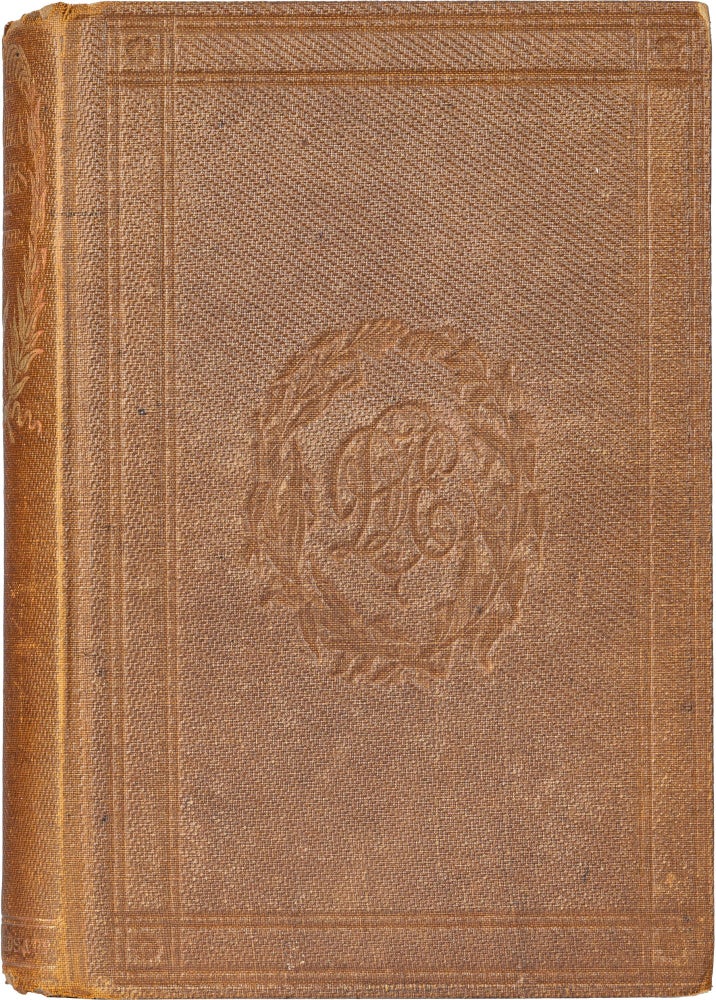
The Piazza Tales
New York: Dix & Edwards, 1856. First Edition. Hardcover. 1st edition. His only book of short stories. Original brown cloth (5 colors, no priority), spine faded but the gilt’s all there (often oxidized away), a 1/4“ split to the spine’s tip, and light wear at its base, front inner paper hinge strengthened, a bookplate, and a 3/4” blindstamp, else very good, and most copies look like a well chewed pen top. Very good. Item #814
6 tales fill the 431 pages. The Lightning–Rod Man is the shortest. It is a moral story saying, “don’t be this guy,” but its absorbing ingenuity and sarcasm would be a career marker if credited to any other name. The Bell Tower is a psychological spellbinder, of ambiguous devilry, that advances Edgar Poe. The Piazza, outing the delusions of idealism, and The Encantadas, a narrative hellishly reimagining the Galapagos Islands, are longer and just as fine. All 4 are unlike anything written before them and more intricate than most novels, but it’s the 77 pages of isolation in Bartleby the Scrivener, and the 161 pages of good versus evil and the nature of perception in Benito Cereno, that soar to the heights and stand tall at the zenith. Every word of narrative, characterization, atmosphere, and theme (the 4 pillars of short fiction) are fused in an unfamiliar manner that is, nonetheless, easily recognized as clear, reliable, symmetrical, seamless, and readily welcomed, but it was all too late for Melville.
By 1856 he could not believe what was not happening to him. He had already decided that mind is to spirit as wave is to ocean, and unthreatened by failure, he wrote as brilliantly as he could, for as long as someone would pay him, and scorned his publishers’ advice to write down to his readers and critics and enjoy a lucrative commercial career (his publishers did not understand that lions are not farm animals, and Melville did not understand that money is coined liberty). As to the inflexibility of Melville’s martyrdom, or the shallowness of 19th century readers, neither justifies why, in our time, 100 years after Melville’s rediscovery, this 1st edition is still irrationally undervalued. And as for critics, then and now, a few years ago I wrote a paper on the inability of most 9–year olds to recognize timeless literature. I had intended to write an essay here on the inability of most critics to recognize what would become timeless literature on a first reading, but in reviewing the earlier essay I realized that the two essays were the same.
We can cogently (though not irrefutably) argue that this book is American literature’s finest assembly of short stories. The 1st printing was 2,500 copies and sales moved slower than postal chess (1,051 sold), ironically, though repeatedly, the public’s reaction to real art so, it was not startling that, in 1857, after one last novel (The Confidence Man, an overlooked masterpiece with fiction’s uttermost circus train of characters), Melville was excommunicated from literature (stubborn pilots lose big ships), failed to have his prose published again in his life (the bee gives her soul with her sting), and like so many virtuosos before him, he was never rescued.
Price:
$6,500.00
